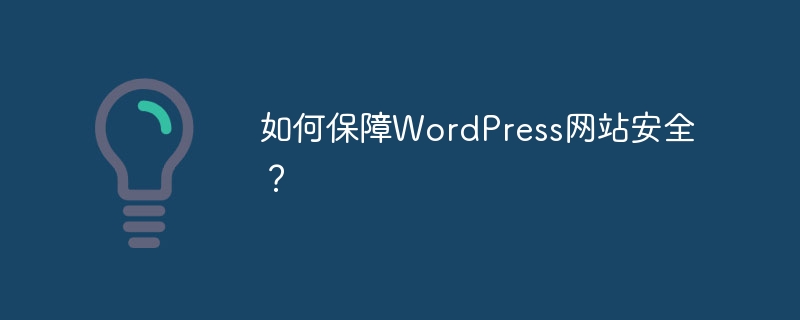

How to ensure the security of WordPress website?
WordPress is one of the most popular website building platforms in the world. However, due to its open source nature, WordPress websites are often targeted by hackers. In order to ensure the security of WordPress websites, website administrators need to take a series of measures to prevent potential security threats. The following will introduce some common security measures and specific code examples to help website administrators strengthen the security of WordPress websites.
function custom_password_policy( $password ) {
if ( strlen( $password ) < 8 ) {
return new WP_Error( 'password_too_short', 'Password is too short. It must be at least 8 characters long.' );
}
if ( !preg_match( "/[a-z]/", $password ) ) {
return new WP_Error( 'password_no_lowercase', 'Password must include a lowercase letter.' );
}
if ( !preg_match( "/[A-Z]/", $password ) ) {
return new WP_Error( 'password_no_uppercase', 'Password must include an uppercase letter.' );
}
if ( !preg_match( "/[0-9]/", $password ) ) {
return new WP_Error( 'password_no_number', 'Password must include a number.' );
}
return $password;
}
add_filter( 'user_profile_update_errors', 'custom_password_policy' );function change_admin_username( $user_login, $user ) {
if ( $user->user_login == 'admin' ) {
$new_username = 'new_admin_username';
wp_update_user( array( 'ID' => $user->ID, 'user_login' => $new_username ) );
}
}
add_action( 'wp_login', 'change_admin_username', 10, 2 );<FilesMatch "(wp-config.php|xmlrpc.php|wp-admin)">
Order allow,deny
Deny from all
</FilesMatch>The above are some common measures and specific code examples to ensure the security of WordPress websites. In addition to the above measures, website administrators should also regularly monitor the security status of the website, stay vigilant and respond to possible security threats in a timely manner to ensure the security of the WordPress website.
The above is the detailed content of How to secure your WordPress website?. For more information, please follow other related articles on the PHP Chinese website!




